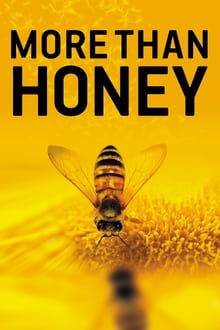
No Place To Call Home chronicles the lives of several people born and raised in Jesus People USA Evangelical Covenant Church, a religious sect on Chicago’s north side. The film is essentially a story within the story as the director details how he began exploring his past of growing up in the sect, and his discovery of dozens upon dozens of cases of child sexual abuse, of which many were allegedly unreported by the sects leadership. – Jaime M Prater
You May Also Like

In 1966, Deann Borshay Liem was adopted by an American family and sent from Korea to her new home in California. There, the memory of her birth family was nearly obliterated, until recurring dreams led her to investigate her own past, and she discovered that her Korean mother was very much alive. Bravely uniting her biological and adoptive families, Borshay Liem embarks on a heartfelt journey in this acclaimed film that first premiered on POV in 2000. First Person Plural is a poignant essay on family, loss and the reconciling of two identities.

This documentary is a manifesto for today’s youth, addressing the societal forces that have shaped and held back their generation. It shows how young people can deploy their strengths to revolutionize the system as they confront both the US political crisis and the global environmental crisis.

Jason Kuller, the comedian from New York’s Catskill Mountains, performs his material on an intimate stage in this riotous special.

Kara Robinson Chamberlain recounts in vivid detail being taken at gun point from a friend’s front yard. Forced into in a cramped, dark storage container in her captor’s car, Kara instantly knew her life was in grave danger. In a moment she describes as a divine intervention, the 15-year-old realized she had to be her own victor and take her life back; she had to escape.

Examining one of the most baffling unexplained deaths of recent years. In August 2010, Gareth Williams, a GCHQ employee on a 3-year secondment to MI6, was found dead inside a padlocked duffle bag in the bath of his London flat.

How rich was Hitler really, and how did he waste his money, both while living and in his will?

Documentary about the St. John’s Day festival in Tallinn. Recorded with a hidden camera, the film is full of contrasts and expressively depicts the changes in the traditions of Midsummer’s Eve and the emotional impoverishment of city dwellers, showing their behaviour at the bonfires – their loneliness as well as their alcohol-induced exuberant state in big crowds.

Where are you, João Gilberto? sets out in the footsteps of German writer Marc Fischer who obsessively searched for the legendary founding father of Bossa Nova and last great musical legend of our time, Brazilian musician João Gilberto, who has not been seen in public for decades. Fischer described his journey in a book, Hobalala, but committed suicide one week before it was published. By taking up Marc Fischer’s quest, following his steps one by one, thanks to all the clues he left us, we pursue João Gilberto to understand the history, the very soul and essence of Bossa Nova. But who can tell whether we will meet him or not?

In 2015, Ossamah Al Mohsen and her son were the victims of a trip on the Hungarian border by a television reporter in her desperate flight from a Syria at war. The cameras captured this moment by scandalizing public opinion. This kick allowed Ossamah, famous soccer coach in his country, to arrive in Madrid and resume his profession. But the rest of his family did not have the same luck. The story of Ossamah allows us to reflect on the survival of thousands of Syrian families trapped in Turkey but also that of Moatassam, Youssef and Muhannad, three promising Syrian footballers who were robbed of the best years of their lives by war.

With dazzling nature photography, Academy Award®–nominated director Markus Imhoof (The Boat Is Full) takes a global examination of endangered honeybees — spanning California, Switzerland, China and Australia — more ambitious than any previous work on the topic.

What is true and what is false in the hideous stories spread about the controversial figure of the Roman emperor Gaius Julius Caesar Augustus Germanicus (12-41), nicknamed Caligula? Professor Mary Beard explains what is accurate and what is mythical in the historical accounts that portray him as an unbalanced despot. Was he a sadistic tyrant, as Roman historians have told, or perhaps the truth about him was manipulated because of political interests?

Armando Iannucci presents a personal argument in praise of the genius of Charles Dickens. Through the prism of the author’s most autobiographical novel, David Copperfield, Armando looks beyond Dickens – the national institution – and instead explores the qualities of Dickens’s work that still make him one of the best British writers. While Dickens is often celebrated for his powerful depictions of Victorian England and his role as a social reformer, this programme foregrounds the elements of his writing which make him worth reading, as much for what he tells us about ourselves in the twenty-first century as our ancestors in the nineteenth. Armando argues that Dickens’s remarkable use of language and his extraordinary gift for creating characters make him a startlingly experimental and psychologically penetrating writer who demands not just to be adapted for television but to be read and read again.